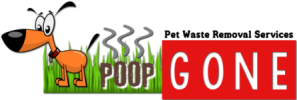Dog Behavior – Coprophagia (Poop Eating)
Coprophagia is the practice of eating feces. It is one of the most misunderstood behaviors in dogs. Many puppies engage in coprophagia because it is common for their mothers to eat the feces of their young as a way to keep the den clean, and they are mimicking that behavior. It is also a way for the puppy to explore its surroundings. Most dogs will eat the feces of other animals (particularly cats, other dogs, sheep and horses. Many modern commercial diets are so loaded with vitamins and minerals that will not be fully digested on the first passage; this especially the case with cats. It becomes a case of concern when dogs begin to eat their own feces. It is natural for dogs to want to sniff other dogs’ feces, as canine anal glands secrete pheromones for other dogs to “read” that act as territory markers and dog signposts and by extension it might be just as natural for some dogs to want to consume these signposts. But we don’t really know for sure why they do it. Mostly, it seems to be a matter of personal preference; some dogs seem to really enjoy poop eating, while others seem to be overly concerned with keeping their area clean.
There are several more theories as to this behavior:
A coprophagous dog is attempting to supplement a nutritionally deficient diet. She isn’t getting the nutrition her body needs so she supplements it with the feces of other animals in the hope that their maybe some residual nutrition left in the feces. This is a barely plausible theory, apart from the fact that studies have been conducted on malnourished and well-nourished dogs; and the incidence of coprophagia among both groups was virtually identical.
The behavior stems from the carnivorous/scavenging heritage of our dogs. When carnivores make a kill, they tend to consume the entire carcass of the animal – including the digestive tract and its contents. It has been suggested that coprophagia is an extension of this instinctive behavior.
It may be related to loneliness, boredom or stress. The particulars here are a bit hazy, but essentially dogs that spend too much time on their own , lead an under stimulated existence or are excluded from human interaction and affection – will succumb to coprophagia simply for something to do.
Internal parasites may be leaching nutrients and calories from the dog’s digestive tract. Typically, dogs infected with intestinal parasites will have extraordinarily voracious appetites and will be constantly eating all that he has access to, including in advanced cases technically inedible substances, including poop.
Improperly house trained dogs eat their own poop to conceal the “accident” from their owners to avoid detection and punishment. This is true of dogs whose owners punish them for accidents. A dog that is defecating indoors has either not been house trained properly, or has a medical condition. Either way, it isn’t her fault. If it is the latter case, be sure to take them to a vet.
It is nearly impossible to “cure” coprophagia, but there are ways to minimize it. Before you attempt to eradicate coprophagia from your dog’s habits, you should take her to the vet to rule out medical problems, especially if the behavior started out of the blue. Below are some suggestions that have been tried:
Clean up bowel movements as soon as they happen. If it isn’t available she can’t eat it, and it will save you flies, lawn damage and stepping in it. A word of caution: don’t allow your dog to see you remove it, as many dogs will see this as a “game”- they will work to emulate you cleaning.
Treat the feces with cayenne. This has been widely recommended but is rarely effective. You have to coat each and every stool, which, apart from being rather labor intensive, is fairly repugnant to do. If you miss one, the coprophagous dog will find it and it becomes kind of like an intermittent reward system – find the untreated one!
Give them an additive that makes the poop unpalatable. There are commercially available food additives that make that dog’s feces taste unappealing, one is called FORBID. It has been suggested that adding a breath mint to the dog’s food will also make the feces unappetizing. This is unproven but might make her breath better! The main drawback is that the additives must go into the animal’s feces which are being eaten. This is fine if your dog eats her own feces, but if she routinely eats other dog’s feces or cat feces, or infant feces, it won’t work.
Change their diet (slowly). There have been fairly reliable studies that show dogs prefer more solid stools that high fiber dry food diets are inclined to produce. If your dog is self-coprophagous, then she should be gradually switched to a canned food diet with about one tablespoon of vegetable oil per ten pounds of body weight. This will give your dog’s feces an unpalatable texture.
The best way is to walk your dog. Teach your dog the “leave it” command and clean it up as it happens. Lead them away from feces. Again, if a dog hell-bent on eating feces can’t get any, she won’t eat it.
For more information on training your dog, including detailed advice for handling and preventing problem behaviors, step-by-step how-to’s for obedience work and tricks, and an in-depth look at canine psychology and communication, check out Secrets to Dog Training. It’s the ultimate resource for dog owners! Visit the site by clicking on the link below:
